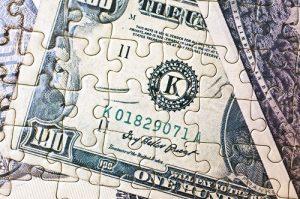- Free Consultation: 916 459 2364 Tap to Call
Advantages and Disadvantage of Chapter 13 bankruptcy

When consumers face massive amounts of debt that they can’t pay back, U.S. bankruptcy laws can help legally abolish certain debt obligations. This frees people up to pay back the debts that can’t be discharged and gives them a new financial start.
Individuals and sole proprietorships have two options when filing for a California bankruptcy: chapter 7 bankruptcy and chapter 13 bankruptcy. These two forms of debt relief behave differently. Therefore, anyone thinking of declaring bankruptcy should consult a Sacramento bankruptcy attorney. In this article, we’ll outline both the advantages and disadvantages of Chapter 13 bankruptcy.
Chapter 13 bankruptcy Explained
Chapter 13 bankruptcy is often referred to as reorganization bankruptcy, as it is designed to allow debtors to reorganize their financial affairs under the protection of the US Bankruptcy Courts. Once an individual files for Chapter 13 bankruptcy they are expected to present a repayment plan that will outline their income and how they plan on paying back their creditors.
The Chapter 13 repayment plan will typically last between 36 and 60 months and will involve the debtor making a monthly or bi-weekly payment to the bankruptcy trustee assigned to the case. The bankruptcy trustee then divides the money among creditors and issues payment. Upon completing the repayment plan, any other remaining debt that is eligible for a discharge becomes null and void.
Advantages of Chapter 13 Bankruptcy
Chapter 13 bankruptcy in California offers several advantages over different types of debt relief, with the first being the automatic stay. The automatic stay immediately halts all collection attempts including foreclosures. It is with bankruptcy’s automatic stay that debtors can save their home, prevent vehicle repossession, and even avoid disconnection of utilities.
A second advantage to filing for Chapter 13 bankruptcy protection is the cram down. Cramming down debt is an aspect of Chapter 13 bankruptcy that allows debtors to modify, and often lower, their mortgage loans and vehicle loans. The cramdown works by decreasing the total amount of the loan to match the market value of the property securing it.
Furthermore, Chapter 13 bankruptcy is a supreme tool to help homeowners who are behind on their mortgage payments. Chapter 13 bankruptcy allows debtors to pay past-due mortgage payments not all at once, but over the entire life of the 3-5 year plan.
Lastly, co-signers or co-debtors that will be responsible for any debt obligations after the debtor’s responsibilities to pay them are protected for the entire life of the plan. Co-signers must pay the debt but will have a considerable amount of time to do so.
Disadvantage of chapter 13 Bankruptcy
Perhaps the most substantial disadvantage of a Chapter 13 bankruptcy is that it will remain on your credit report for up to 7 years. While this won’t prevent you from obtaining a loan during that same period, it can drastically increase one’s cost of credit via higher interest fees.
Another disadvantage of Chapter 13 bankruptcy is the lack of access to new credit during your plan. The bankruptcy courts expressly forbids any debtor from obtaining any new debt during the chapter 13 repayment plan without prior court permission. While there may be an opportunity to take a new loan if the action is deemed necessary, it requires filing a motion with bankruptcy courts and approval by a bankruptcy judge.
An additional disadvantage of Chapter 13 bankruptcy is the need to consistently notify the bankruptcy courts and bankruptcy trustee of changes during the course of your repayment plan. While this constitutes an inconvenience more than a disadvantage in most cases, failure to continuously meet your Chapter 13 repayment obligations can result in a dismissal of your case, leading to no debt discharge.
In concluding the disadvantages of Chapter 13 bankruptcy, numerous debtors find the amount of time it takes to receive debt relief a drawback. As aforementioned, a Chapter 13 bankruptcy case can last up to five years which is a considerable amount of time.
Contact a Sacramento Bankruptcy Attorney
Chapter 13 bankruptcy in California is a powerful tool to help save your home and other property while hopefully discharging some or all of your non-priority, unsecured debt. This form of bankruptcy, however, should be approached with a high degree of certainty that can only come from consulting a Sacramento Bankruptcy attorney. A bankruptcy lawyer can assure you if Chapter 13 bankruptcy is the best for your financial situation and help ensure that you complete your bankruptcy and receive your final discharge.











